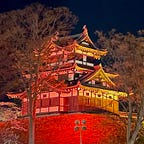Reconciling with a past we did not always choose is a bold move
A fascinating and poignant article in the Washington Post about an African American family who had identified the farm where their ancestors had been enslaved prior to the US Civil War 1861–65. The family that owned the farm in the 1800’s still owned the farm and the building where their enslaved ancestors had lived in was still in existence near the main farm house.
In the one hundred sixty or so years since their ancestors were freed from their bondage, the African American family had grown and gone on to great successes and achievements including a member becoming a Secretary in the Obama Administration’s Cabinet. Once the farm was located on the map, one of the family members drove up to the house and introduced themselves to the landowners. Eventually, many of the family came to visit as well, in order to see, touch, and feel the reality of their ancestors’ experiences.
The landowners were kind and accommodating toward the family. They didn’t seem to harbour the same prejudices, or at least to the same degree, as their relatives who had gone before them. Yet, an awkward realization to confront that your family and home had been used to enslave people, and here were those people.
If it were our families that had suffered in such a situation, how would we feel in this “homecoming” of sorts? The strange realization of how difficult their ancestors’ lives must have been, how much they had to overcome, how unfair/unjust this all had been. And, imagine how it might have been different if the landowners/family were unapologetic or had sought to deny the well-documented evidence? The bitterness and frustration would have been real and palpable.
Reflection on the Korean experience in Japan
Taking this story out of the United States and placing it into another context, how do you think that Chinese, Korean, or Taiwanese might feel coming from similar, much more recent, impressed labour situations in Japan, Korea, Manchuria, Taiwan, and many islands formerly claimed as Japanese territories before, during, and after WW2? These memories are not-so-distant and the wounds are not so well-healed nor forgotten.
The new Apple TV fictional drama, Pachinko, attempts to tell a story of Koreans leaving Busan for Japan during this time. The subjugation of their language and their culture, in both Korea and Japan, is portrayed. It is a multi-layered cake as the story switches between pre-WW2 Korea/Japan and Korea/Japan of 1989. It is a viewpoint of Japan and Japanese history that is not often discussed.
The consequences of this history remain even in 2022 as there continues to be a diaspora of Koreans, for instance, who live on Sakhalin Island in Russia. They had worked for the Japanese as labourers prior to the Soviet army seizing the island from Japanese control at the end of WW2. And, as the island was previously Japanese territory passports had not been required to live there. So, after the Soviet occupation, these workers had no official documents to prove they were, in fact, Koreans. They remain today living in Russia maintaining their language, making kimchi, practicing Tae Kwon Do while hoping that one day they may be allowed to repatriate to South Korea from Russia.
Impact upon the present
In a moment of time where a new Korean President has been elected and seeks a new rapprochement with Japan, it seems like it may be the right time for Japan to consider the consequences of the not-so-distant past as worthy of thought, reflection, and sympathy.
Japan is a country famous for their theatrics of apologizing. It is also famous for not accepting apologies because the apology is too late, too insincere, not humble enough, etc. Imagine how silly it is for Japanese to begrudge Koreans for feeling bitter about their historical experiences.
The future of East Asia can be rewritten through humility, optimism, and common bonds or with crossed arms and furrowed brows.
